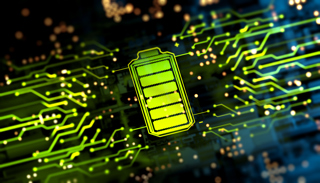More than half of electric vehicle (EV) drivers (51%) admit to ‘ghost charging’ – pretending to charge as a tactic to nab a parking space, new research from Sainsbury’s Smart Charge reveals.
The issue is particularly prevalent in large cities, with Cardiff, Birmingham and Belfast being the worst offenders.
More than two thirds (70%) of EV drivers say that there is a lack of etiquette within the EV community, with nearly nine in 10 drivers (88%) admitting to experiencing frustration at charging stations due to other drivers not following the rules.
When it comes to common bugbears amongst EV owners, plug hogging (34%), long waiting times (31%), poor parking skills (29%), and cable spaghetti - drivers taking the 'wrong side' charging cable - (26%), were rated as the top annoyances.
Etiquette coach William Hanson has partnered with Sainsbury’s Smart Charge to co-create an EV Etiquette Guide.
Including relatable anecdotes and advice, the guide aims to help settle driver disputes and encourage EV drivers to think twice about their charging station manners.
He said: “It’s been an absolute honour helping to educate the British public on appropriate social etiquette when it comes to navigating the EV world as no one likes an awkward encounter or a charge hog.
“By working with Sainsbury’s Smart Charge to create an EV Etiquette Guide, we’re hoping to reduce the frustrations felt by the electric vehicle community, so people can have a more enjoyable, stress-free experience.”
Trish Devlin, customer director at Sainsbury’s Smart Charge, added: “We know that the rules around EV charging can be a minefield, but Smart Charge aims to make everyday life easier for drivers.
“We’re always listening to our customers and want to help solve common problems, creating a better experience for all.”
Littering (20%), not following instructions (22%), and engaging in small talk (18%) also topped EV drivers pet hates list.
When asked how they use their time while waiting for their EV to charge, nearly half admitted that they use this wait time as an opportunity to have some time for themselves (47%), do their weekly supermarket shop (29%), have a break from their partner (13%) and children (12%) or even using it as an opportunity to catch up on work or emails (32%).


























Corp Buyer - 19/07/2024 15:22
The solution to this is very easy , if the vehicle is not being charged a camera takes a picture of the vehicle and a parking fine is issued for not complying with parking conditions